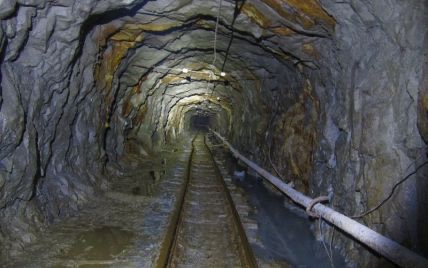Closure of Mines – Not a Sentence, but an Opportunity to Create a New Economy
Coal mining is decreasing in Ukraine and around the world. The cost of production is increasing, production volumes are decreasing, and equipment is aging and deteriorating. More and more mines are becoming unprofitable and closing down.
The crisis in coal mining in Ukraine is also exacerbated by the war. The occupation of parts of coal mining enterprises in eastern Ukraine has led to the shutdown of 11 state mines and a 35% reduction in coal production.
Climate commitments made by Ukraine and outlined in the updated Energy Strategy of Ukraine until 2050 set the deadline for phasing out coal use in state power plants to be 2035.
How to achieve these goals and maximize the interests of coal communities' residents? The problem is that in our country, the processes of mine closures have been happening for decades without any corresponding support program for territories dependent on coal mining or coal-fired power plants. This has led to dire consequences.
Unpaid wages and unemployment, reduced budget revenues, collapse of other related entrepreneurial activities, population outflow. Add to this the negative environmental consequences and the so-called professional diseases of miners.
As a result, coal communities and towns are turning into depressed regions where it is very difficult to build a new economic system.
In many countries, however, the model of regional development, which involves transitioning to "green energy," a high standard of living, and good prospects for residents of coal communities, has long been implemented. This model is called the Just Transition.
It occurs with active participation from civil society, government, public and environmental organizations, trade unions, international donors, and most importantly – every step is taken considering the capabilities and needs of the specific community and its most vulnerable population groups.
Today, there are many examples where, thanks to the Just Transition, coal communities in various countries not only smoothly endured the process of phasing out coal mining but also received incentives for development and even managed to fundamentally rebuild the economy.
The best international experience for Ukraine in the context of the Just Transition comes from Germany and Poland.
We need to become the voice of coal communities
Last November, we founded the Association of Coal Communities of Ukraine. As of today, 19 communities from Lviv, Volyn, Ivano-Frankivsk, Vinnytsia, Dnipropetrovsk, Donetsk, and Luhansk regions have become its members.
Of course, we are open to all other communities dependent on coal mining enterprises or thermal power plants that decide to join us at any stage.
The Association's task is to help communities cooperate both among themselves and with representatives of state authorities, foreign financial institutions, and donors.
We will, for example, participate in the development of the State Target Program for Just Transition until 2030, organize training for personnel of coal community management bodies, hold various meetings and forums.
We are already working on launching a web platform for the Just Transition. In addition to regularly updating interesting and useful information on transformation, communities will be able to apply for international competitions and grants through the platform.
Representatives of world governments and various funds openly declare that they are looking for projects where they can already start cooperating with Ukraine, with a focus on the energy sector. They are ready to invest funds.
But for this, applications are needed, in which they will see the prospect of the described project and which will be correctly prepared and submitted.
Just Transition amidst war
After the full-scale invasion, the above-mentioned problems of coal communities were compounded by difficulties associated with the overall decline in the economy and the standard of living. If we do not start helping communities today, the question of their survival will arise tomorrow.
The Russian-Ukrainian war has destroyed millions of jobs. At the same time, according to a study by Razom We Stand and the Resource Analytical Center "Society and Environment," Ukraine has the potential to create 4.2 million "green" jobs.
With government programs, international donor funds, and organizations, and provided there is close communication with communities, we can implement numerous projects that will provide decent wages to workers and, accordingly, revenues to budgets.
A Just Transition and the further development of coal regions are also contributions to the economic reconstruction and stability of the entire country.
We must remember that many coal cities are currently under occupation. After the return of these territories, we will need positive experience of a Just Transition because we will face even greater challenges in the communities of eastern Ukraine.
It is crucial that there is already a history of cooperation with international governments and donors, resulting in implemented projects, successful communication experience of coal communities with central authorities, and a government program for a Just Transition on track.
Then we can implement the transformation in regions that have suffered from mine closures for decades and have also suffered tremendous economic, infrastructural, and environmental damage due to the war more quickly and effectively.
Therefore, a Just Transition in those coal communities that are currently in a rearward position is not only a prerequisite for future Just Transition in eastern regions but also a significant push for post-war reconstruction in Ukraine.
Moreover, in the context of transitioning to "green energy," it is also a valuable component of our European integration prospects.
